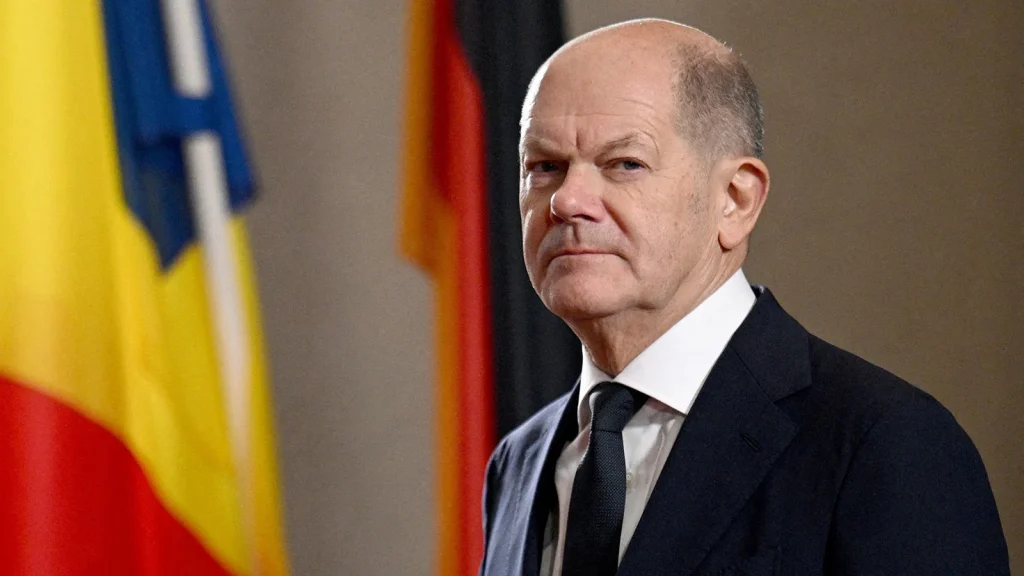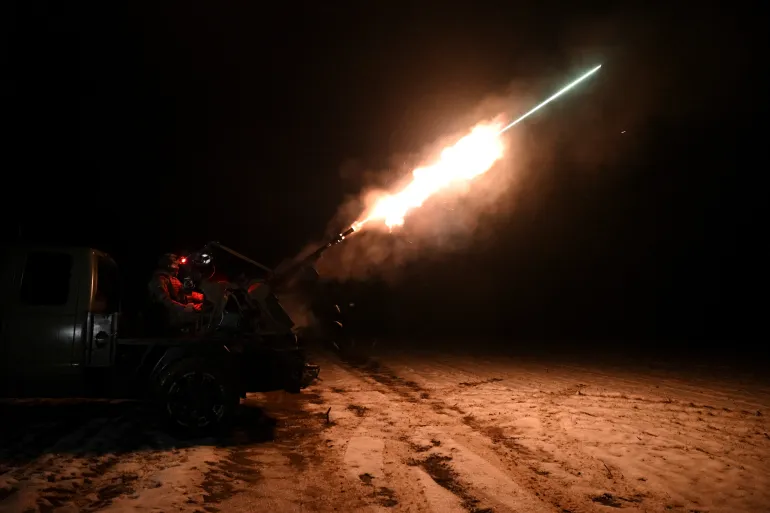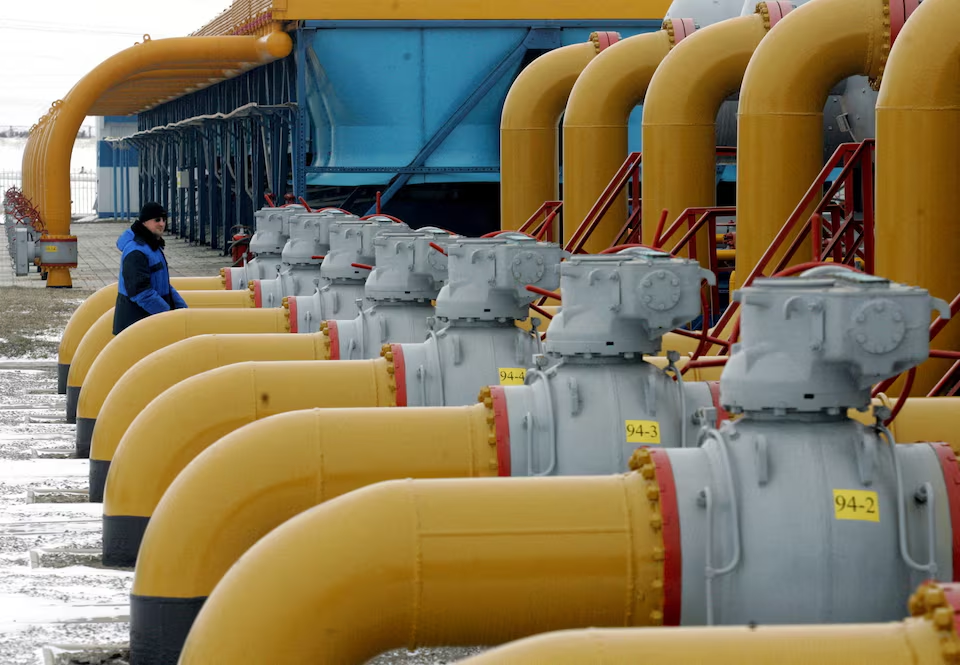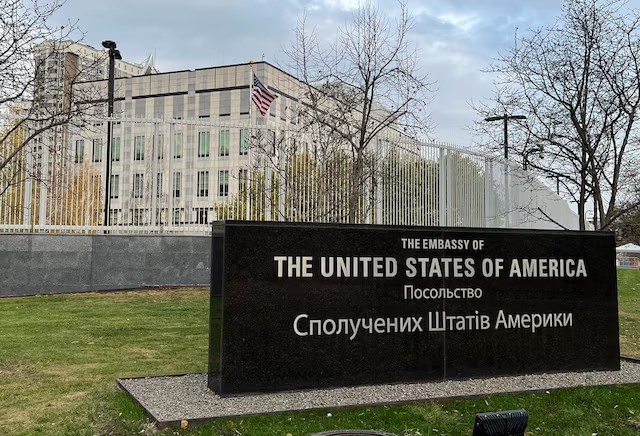Putin Says He’s Ready to Talk With Trump ‘Anytime’ About Ukraine Peace Deal
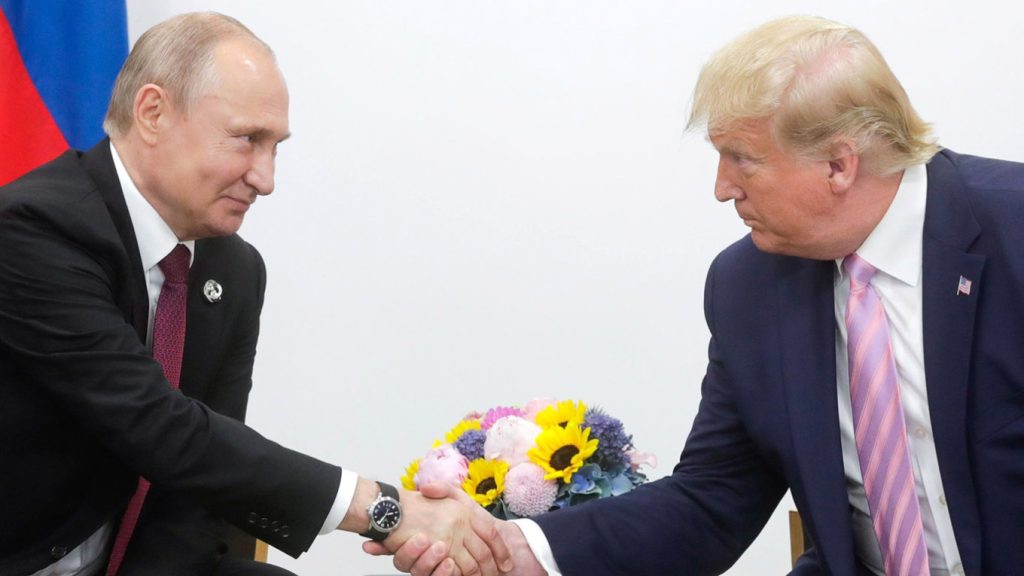
Russian President Vladimir Putin has expressed his willingness to engage in talks with former U.S. President Donald Trump at any time to discuss a potential peace deal regarding the ongoing conflict in Ukraine. This statement, made in recent interviews, marks a significant development in the geopolitical landscape, as it underscores Russia’s desire for negotiations and the potential influence that Trump, who has often been viewed as a more sympathetic figure to Russia, could have on the future of the Ukraine war.
Putin’s Proposal for Dialogue
In the recent comments, Putin emphasized that he is open to discussions with Trump about Ukraine, expressing a desire to find a diplomatic solution to the ongoing war. He suggested that the former U.S. president could play a key role in brokering peace talks between Russia and Ukraine, given his past position and his more favorable stance toward Russia during his time in office. According to Putin, Trump could be an effective mediator, as he has shown interest in engaging with Russia in a way that contrasts with the approach taken by current U.S. President Joe Biden.
Putin’s comments reflect Russia’s ongoing frustration with the international community’s handling of the Ukraine conflict and its dissatisfaction with the current stalemate. Despite its military advances in some areas, Russia has faced significant resistance from Ukrainian forces and continued sanctions from the West. The war, which began in February 2022, has caused immense human suffering and has led to widespread destruction across Ukraine, while also destabilizing global energy markets and impacting international security.
While Putin’s remarks about engaging in talks with Trump have been framed as an opportunity for peace, it is important to consider the context in which these statements have been made. Russia has long maintained that it is open to dialogue but has repeatedly criticized the West’s role in fueling the conflict. Moscow has insisted that Ukraine’s NATO ambitions and its alignment with the West were major contributing factors to the war. Thus, Putin’s offer to engage in talks with Trump may also be seen as a strategic move to shift the focus of the international community and potentially ease some of the pressure from sanctions.
Trump’s Position on the Ukraine War
Donald Trump has consistently positioned himself as a critic of U.S. foreign policy regarding the Ukraine conflict, often suggesting that under his leadership, the war would not have escalated as it has. He has argued that the U.S. should have maintained a more neutral stance, and he has expressed a preference for negotiating directly with Putin to resolve the situation. During his presidency, Trump’s relationship with Russia was a subject of constant scrutiny, with many accusing him of being too lenient toward the Russian government. However, Trump has also maintained that he is willing to work with leaders from all sides in order to bring about peace, and his statement on Ukraine has often highlighted his desire to avoid prolonged conflict.
Trump’s willingness to engage with Putin on the issue of Ukraine has been met with both praise and criticism. Supporters argue that his diplomatic approach would likely be more effective in achieving a peaceful resolution, while detractors contend that his past admiration for Putin could hinder the chances of holding Russia accountable for its actions. Trump’s comments on Ukraine, especially in relation to Putin, have sparked debate about the U.S. role in the conflict and the broader implications of engaging with a leader like Putin, who has faced international condemnation for his actions in Ukraine.
While Trump’s stance on Russia has shifted at times, his offer to engage with Putin in peace talks reflects his broader foreign policy vision of prioritizing direct dialogue over military intervention. Trump has often called for a more “America First” approach, focusing on reducing U.S. involvement in foreign conflicts and emphasizing the importance of national interests.
The Role of Diplomacy in the Ukraine Conflict
The idea of diplomatic negotiations in resolving the Ukraine conflict remains contentious. While many international leaders, including U.S. President Joe Biden, have firmly supported Ukraine’s sovereignty and territorial integrity, there has been growing debate over the possibility of a negotiated settlement. Some argue that a peace deal, potentially brokered by a figure like Trump, could provide a path to de-escalating tensions and ending the war. However, others maintain that any peace agreement should not come at the expense of Ukraine’s territorial rights or the broader principles of international law.
Putin’s willingness to engage in talks with Trump could be seen as part of Russia’s ongoing efforts to create divisions within the Western alliance. By proposing dialogue with Trump, Putin may be hoping to capitalize on Trump’s more pro-Russian stance and weaken the unity of the NATO alliance, which has strongly supported Ukraine’s efforts to defend itself. At the same time, Putin may be seeking a way to negotiate a favorable end to the conflict without losing face on the international stage, particularly as Russia faces increasing economic isolation due to sanctions.
In any peace talks, the issue of Ukraine’s sovereignty and territorial integrity will remain a key point of contention. Ukraine has made it clear that it will not accept anything less than the full restoration of its borders, including the return of Crimea, which Russia annexed in 2014. For many Western leaders, any negotiation that involves compromising on Ukraine’s territorial integrity would be seen as a betrayal of international norms and an encouragement for further aggression from Russia or other authoritarian states.
The International Response to Putin’s Offer
Putin’s statement about being ready to talk with Trump has raised questions about the international community’s response to a potential diplomatic breakthrough. Many Western leaders, particularly those in Europe and the U.S., have been unwavering in their support for Ukraine, insisting that the country must be able to defend itself without compromising on its territorial rights. While some see the possibility of peace talks as a positive development, others worry that negotiating with Putin could lead to concessions that undermine Ukraine’s sovereignty and embolden Russia.
The idea of a peace deal also brings into focus the broader question of how to address the underlying issues that have contributed to the conflict in Ukraine. While diplomacy is crucial in seeking a resolution, it remains unclear whether any agreement would be acceptable to all parties involved, especially considering the deep divisions and the entrenched positions of both Russia and Ukraine.
Putin’s offer to engage in talks with Trump about a peace deal for Ukraine signals a potential shift in the geopolitical landscape, with Russia signaling a willingness to explore diplomatic options to end the war. However, the complexities of the conflict, coupled with differing perspectives on Ukraine’s sovereignty and territorial integrity, make it unclear whether such talks could lead to a meaningful resolution. As the war continues, the international community remains divided on the best course of action, with some calling for negotiations and others insisting on continued support for Ukraine’s resistance to Russian aggression. Ultimately, the path to peace will depend on the willingness of all parties to engage in meaningful dialogue and find common ground.


